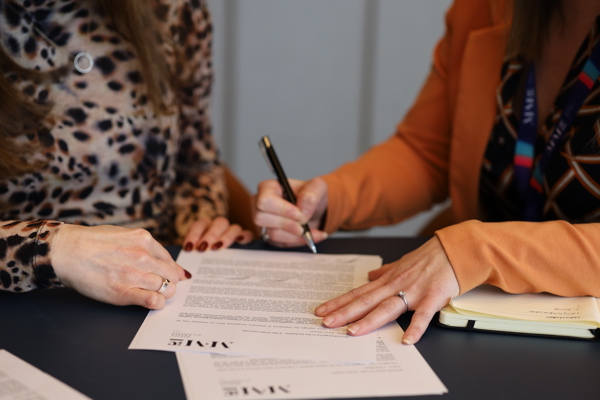One might be forgiven for wondering why, in an age when you can do everything else by Zoom, you can't also get married remotely. In some parts of the world, you can. A number of countries permit marriage by proxy in circumstances where one of the parties is unable to be physically present at the ceremony. Where neither party is able to attend the wedding ceremony in person, some places will even permit marriage by 'double proxy'.
The concept of proxy marriage evolved in the Middle Ages as an expedient for marrying monarchs from different countries. The practice was used widely during the First and Second World Wars, when such marriages were often conducted by telephone. At that point, marriage by proxy was widely accepted as legally valid amongst European nations. Places which now permit this practice include Japan, Ghana, the Gambia and a number of American States. Perhaps the most exotic proxy marriage ever contracted took place in 2003 between a US Citizen living in Texas and her fiancé who was at the time orbiting Earth in the International Space Station! People can't just randomly elect to be marriage by proxy in a place to which they have no connection - there is usually a requirement for at least one of the parties to be domiciled in that place.
It is important to sound a note of caution for anyone contemplating proxy marriage. Concern has arisen in recent years that this practice has become a vehicle for sham marriages contracted purely for immigration purposes, and there has developed a consequent reluctance to recognise such marriages within the UK and the EU. It is not always clear that a proxy marriage contracted in another part of the world will be recognised as legally valid in the UK - the issue is a complex one on which there have been differing court rulings.
This begs the question as to how a married couple might ever actually become aware that their marriage might not be legally valid. Whilst it's conceivable that a couple might sail through life blissfully unaware of any question-marks about the validity of their marriage, a number of issues might arise for them along the way. One of the earliest points at which this might raise its head would be at the point an application being made for a spouse visa. Another juncture at which it might become an issue is at the point of any divorce. One of the most high-profile examples of this phenomenon was the divorce of Mick Jagger and Jerry Hall in 1999. They had been married on Bali in a Hindu ceremony some 9 years earlier, but when Jerry Hall filed for divorce in the English court, Mick Jagger argued that they had never been validly married. The court agreed, making a finding that their marriage was neither legally valid in terms of Indonesian or English law, with the consequence that Jerry Hall accepted a greatly reduced financial settlement.
Another situation in which the issue sometimes arises is upon the death of one of the parties, since marital status impacts on succession rights and on inheritance tax. If the validity of a marriage is thrown into question at this point, all may not be lost. In Scotland, the court may in these limited circumstances grant a declarator to the effect that the parties were in fact married 'by habit and repute' provided that: the parties were married abroad and believed themselves to have been validly married at the time; they were domiciled in Scotland; and that the surviving party only became aware that the marriage was invalid after the other's death. But better to be sure that your marriage is valid at the outset…
First published by The Scotsman


